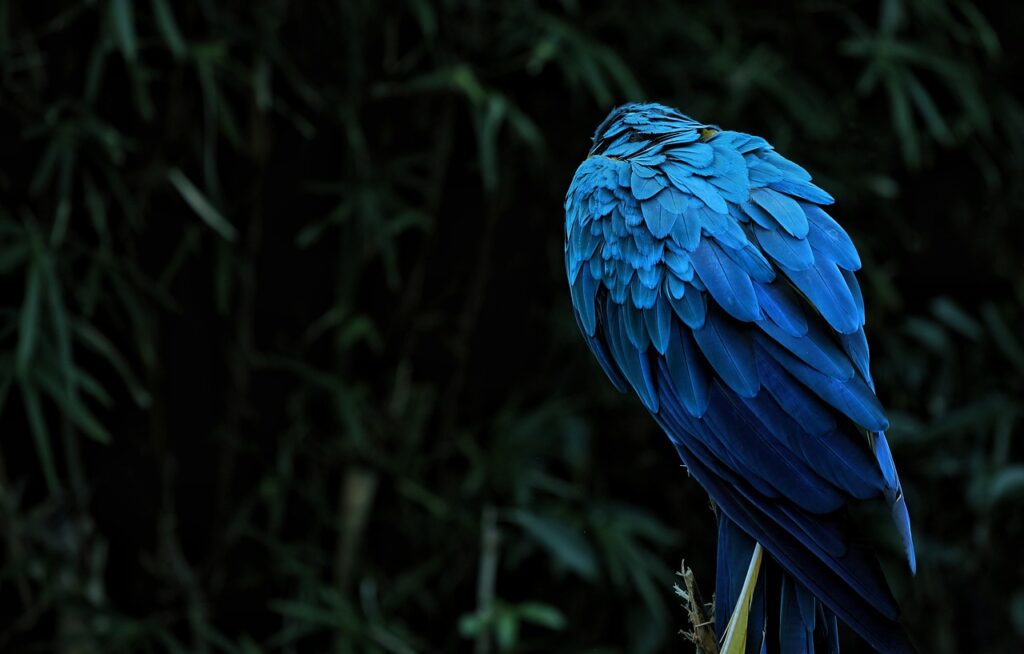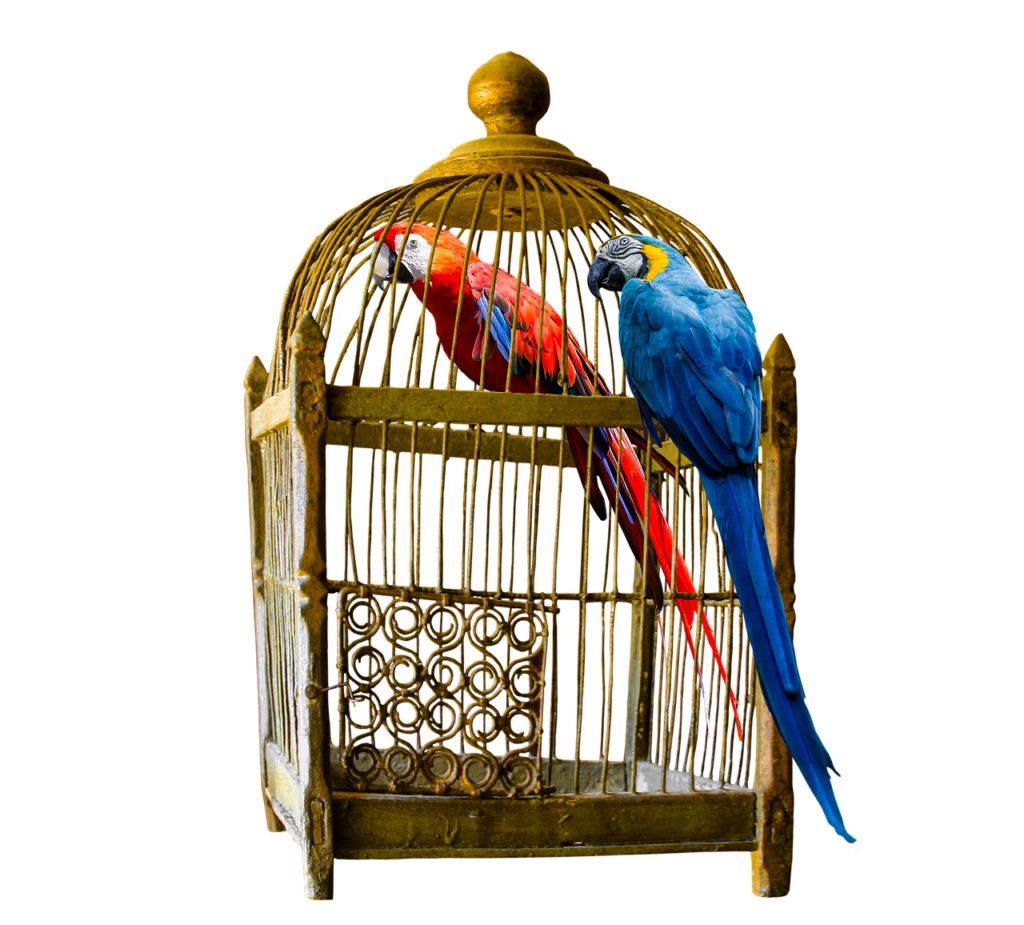Table of Contents
What is the parrot lifespan in captivity?
Getting to Know Parrot Lifespan
The parrot lifespan in captivity can varry depending on the species. Parrots, with their dazzling feathers and chatty nature, can live quite a long time, but it really depends on their species. Knowing how long these colorful birds can stick around helps us take better care of them and make smart choices for their health.
Parrots tend to live longer in captivity than in the wild. Why? No predators and fewer diseases to worry about (The Spruce Pets). How long your pet parrot lives can vary a lot based on its species and how well you look after it.
How Long Different Parrots Live
| Parrot Species | Average Lifespan (Years) |
|---|---|
| Budgies | 5 – 15 |
| Cockatiels | 10 – 20 |
| Conures | 20 – 30 |
| African Greys | 50 – 60 |
| Macaws | 50 – 80 |
| Cockatoos | 40 – 70 |
Data from Cornell University, Rabun Animal Hospital, and PetMD.
These numbers show why it’s important to know what each species needs. Smaller birds like budgies and cockatiels usually live between 5 to 20 years. Bigger birds like macaws and cockatoos can live from 40 to 80 years or even longer.

What Affects How Long Parrots Live?
Several things can affect how long parrots live when they’re pets. These include:
- Living Space: A safe, fun place to live can make a big difference. Make sure they have a roomy and clean cage setup.
- Vet Visits: Regular check-ups with a bird vet can catch and treat common parrot health issues.
- Food: A balanced diet that’s right for their species is key. Find out more about parrot diet and nutrition.
- Mental Fun: Keeping parrots busy with toys and interaction stops them from getting bored and acting out.
Knowing these factors helps us give our feathered pals the best care, so they can live long, happy lives. For more on different parrot species and what makes them special, check out our article on types of parrots.
How to Help Your Parrot Live Longer
Want your parrot to stick around for the long haul? Let’s dive into what really matters for their health and happiness. We’ll chat about their living space and the importance of regular vet visits.
Home Sweet Home
Where your parrot lives can make a world of difference. Think of it like this: Would you want to live in a cramped, dirty room with nothing to do? Neither does your parrot. Here’s the lowdown:
- Room to Roam: Bigger cages are better. They need space to flap those wings and stretch out.
- Cleanliness: A clean cage means fewer germs and a healthier bird. Regular cleaning is a must.
- Mental Stimulation: Parrots are smart cookies. They need toys, perches, and chances to fly to keep their minds sharp. Without these, they can get bored and start plucking their feathers.
| What Matters | Why It Matters |
|---|---|
| Big Cages | More room to move and less stress |
| Clean Cage | Keeps diseases at bay |
| Toys & Perches | Keeps them entertained and happy |
Need more tips on setting up the perfect parrot pad? Check out our parrot cage setup guide.
Vet Visits: Not Just for Dogs and Cats
Regular check-ups aren’t just for us humans. Your parrot needs them too. Here’s why:
- Routine Check-Ups: Catching health issues early can make a big difference.
- Vaccinations: Just like us, parrots need shots to stay healthy.
- Diet Advice: Vets can help you figure out what your parrot should be eating to stay in tip-top shape.
| Vet Care | Why It’s Important |
|---|---|
| Regular Check-Ups | Spot health problems early |
| Vaccinations | Protect against nasty diseases |
| Diet Tips | Keep their diet balanced and nutritious |
Want to know more about keeping your parrot healthy? Check out our parrot health issues guide.
By focusing on these key areas, you can help your parrot live a longer, happier life. For more tips on parrot care, visit our parrot care tips section.

Parrot Nutrition and Lifespan
Feeding your parrot right is key to keeping them healthy and happy for years. Let’s examine why a balanced diet matters and what these colorful birds need to thrive.
Why a Balanced Diet Matters
Giving your parrot a mix of pellets, grains, seeds, nuts, and fresh fruits and veggies is a game-changer for their health. Parrots are herbivores, so their meals should be packed with plant-based goodies.
Malnutrition is a big reason why pet parrots don’t live as long as they could. By feeding them right, you can dodge problems like obesity, vitamin shortages, and heart issues. High-quality pellets are a better bet than seed-based diets, which can be fatty and lack nutrients.
What Parrots Need to Eat
Knowing what your parrot needs to eat helps you keep them in top shape. Aim for a diet that’s 70% veggies and 30% fruits to keep their sugar intake in check. A pellet-only diet is a solid choice for balanced nutrition.
| Food Type | Recommended Percentage |
|---|---|
| Vegetables | 70% |
| Fruits | 30% |
| Pellets | High-quality pellets over seeds |
Besides good food, regular vet visits are a must to keep an eye on your parrot’s health. For more on what to feed your parrot, check out our parrot diet and nutrition guide.
Boosting Your Parrot’s Lifespan
To help your parrot live longer, don’t forget about mental stimulation and social time. Toys, training, and making sure they get 10-12 hours of sleep in a dark room each night can make a big difference. For more tips on keeping your parrot happy, see our parrot care tips.
By focusing on a balanced diet and meeting their nutritional needs, you can help your parrot live a longer, healthier life.
Keeping Your Parrot’s Mind Buzzing
Keeping our parrots mentally sharp is key to their happiness and long life. These smart birds need daily activities, interaction, and mental challenges to stay in top shape (The Spruce Pets).
Fun Ways to Keep Parrots Busy
Keeping parrots entertained isn’t rocket science. Here are some simple tricks:
- Toys: A mix of toys can keep parrots busy. Swap them out regularly to keep things fresh.
- Perches: Different perches help parrots move around and exercise their feet.
- Foraging: Hide treats in puzzle toys or around their cage to mimic their wild foraging habits.
- Social Time: Spend quality time with your parrot. Talk, sing, or even watch TV together to strengthen your bond.
For more fun ideas, check out our parrot care tips section.
Beating Boredom
Bored parrots can develop bad habits like feather plucking or loud squawking. Here’s how to keep them entertained:
- Flying Time: Let your parrot fly outside its cage for exercise and mental health (Rabun Animal Hospital).
- Training: Regular training sessions can be mentally stimulating and rewarding. Teach new tricks or commands to keep their minds active. For more tips, see our guide on how to train a parrot.
- Interactive Play: Play with toys or games that challenge their problem-solving skills.
- Enriched Environment: Add branches, swings, and mirrors to their space for extra mental stimulation.
For more on preventing boredom, check out our section on parrot behavior problems and how to fix them.
By adding these activities to your routine, you’ll keep your parrot mentally sharp and happy. Regular mental challenges boost their lifespan and deepen their bond with their feathered buddy.
Parrot Health and Longevity
Keeping our feathered buddies healthy and happy is key to ensuring they stick around for a long time.
Common Health Issues
Parrots, just like us, can face a bunch of health problems. Knowing what to look out for can help us keep them in tip-top shape. Here are some common issues:
- Psittacosis: This nasty bacterial infection messes with their breathing.
- Feather Plucking: Usually a sign of stress or something else going on. More on feather plucking.
- Obesity: Poor diet and no exercise can lead to a chubby parrot with health issues.
- Respiratory Infections: Often caused by bad air or germs.
- Malnutrition: This happens when their diet is all out of whack. Check our parrot diet and nutrition guide.
| Health Issue | Symptoms | Prevention/Treatment |
|---|---|---|
| Psittacosis | Sneezing, discharge, lethargy | Regular vet visits, antibiotics |
| Feather Plucking | Bald spots, stressed behavior | Better environment, medical help |
| Obesity | Excess weight, sluggishness | Good diet, exercise |
| Respiratory Infections | Coughing, wheezing, nasal discharge | Clean air, quick vet care |
| Malnutrition | Poor feathers, weakness | Balanced diet with pellets, grains, fruits, and veggies (The Spruce Pets) |
Preventative Measures
Taking care of our parrots before problems pop up can make a huge difference. Here’s how:
- Balanced Diet: Feed them a mix of pellets, grains, seeds, nuts, and fresh fruits and veggies. More on parrot diet and nutrition.
- Regular Vet Visits: Regular check-ups with a bird vet can catch issues early. More on parrot veterinary care.
- Mental Stimulation: Keep them busy and entertained to avoid boredom and feather plucking. Tips for keeping parrots engaged.
- Exercise: Make sure they have space and chances to move around to avoid obesity.
- Safe Environment: Create a safe home free from harmful stuff. Check our parrot cage setup guide.
By focusing on these tips, we can help our parrots live long, healthy lives. For more on making your parrot’s life awesome, check out our articles on parrot talking ability and parrot care tips.
Making Your Parrot’s Life Longer and Happier
Bonding and Interaction
Getting close with your parrot is key to making sure they live a long, happy life. These birds love company and need regular interaction to feel safe and loved. Spend time chatting, playing, and training with your parrot to keep their minds sharp and their hearts happy. Want to know more? Check out our guide on how to train a parrot.
Keeping your parrot entertained is just as important. They need toys, perches, and chances to stretch their wings outside the cage (Rabun Animal Hospital). This helps avoid problems like parrot feather plucking.
| Activity | How Often | Why It’s Good |
|---|---|---|
| Talking and Singing | Every Day | Builds a strong bond and improves communication |
| Playing with Toys | Every Day | Keeps their mind active |
| Training Sessions | Once a Week | Boosts behavior and trust |
| Flying and Exercise | Regularly | Keeps them fit and healthy |
Keeping Their Home Safe
A safe home is a happy home for your parrot. Make sure their cage is comfy and free from dangers. It should be big enough for them to move around and stretch their wings. Need more tips? Check out our guide on parrot cage setup.
Watch out for harmful stuff. Keep toxic foods, plants, and household items away from your parrot. Clean their cage regularly to stop bacteria and mold from building up.
Regular vet visits are also a must. Take your parrot to an avian vet at least once or twice a year to catch any health issues early (Bird Exotic Vet).
By bonding with your parrot, keeping them entertained, and making their home safe, you can help them live a longer, happier life. For more tips on taking care of your parrot, check out our full list of parrot care tips.
Long-Term Commitment
Thinking About Lifelong Care
Bringing a parrot into your home isn’t just a pet adoption; it’s a long-term relationship that can last decades. Parrots, especially the bigger ones, are known for their impressive lifespans. Some, like African Greys and Macaws, can live over 50 years if well taken care of (PetMD). This means your feathered buddy might outlive you, so it’s crucial to think about their lifelong care (Rabun Animal Hospital).
Lifespan of Popular Parrot Species
| Parrot Species | Average Lifespan (Years) |
|---|---|
| African Grey | 50-60 |
| Macaw | 50-70 |
| Cockatoo | 40-70 |
| Amazon Parrot | 40-50 |
| Budgerigar | 5-10 |
Source: Bird Exotic Vet
Given how long these birds can live, it’s important to make sure they get consistent care. This means regular vet check-ups, a balanced diet, and plenty of mental stimulation. Ideally, you should take your parrot to an avian vet every 6 months to a year to catch any health issues early and keep them in tip-top shape (Bird Exotic Vet). For more tips on keeping your parrot healthy, check out our section on parrot health issues.
Planning for the Future
Planning for the future is a must when you own a parrot. Since they might outlive you, it’s smart to make arrangements for their care if you’re not around. This could mean naming a caretaker in your will and making sure they know all about your bird’s needs and quirks (PetMD).
Here are some steps to plan for your parrot’s future:
- Write Down Care Instructions: Make a detailed care plan that covers diet, routine, and vet care.
- Pick a Caretaker: Find someone you trust who can take over your parrot’s care.
- Include Your Parrot in Your Will: Mention your parrot in your will and set up provisions for their care.
- Set Up a Trust: Think about setting up a financial trust to cover your parrot’s care costs.
For more on essential care tips, check out our article on parrot care tips.
By understanding the long-term commitment and planning ahead, you can make sure your parrot lives a long, happy, and healthy life. This commitment not only benefits your feathered friend but also brings joy and companionship into your life. For more cool facts about parrots, explore our section on parrot amazing facts.
Parrots in Captivity vs. the Wild
Lifespan Differences
Parrots live longer in captivity than in the wild. Why? It’s all about the perks of a controlled environment. No predators, fewer diseases, and regular check-ups from the vet (The Spruce Pets). Plus, a balanced diet keeps them chirping for years.
| Parrot Type | Lifespan in the Wild | Lifespan in Captivity |
|---|---|---|
| Small Parrots (e.g., Budgies) | 5-10 years | 10-15 years |
| Medium Parrots (e.g., Amazons) | 15-25 years | 30-50 years |
| Large Parrots (e.g., Macaws) | 30-40 years | 50-80 years |
Habitat’s Role in Longevity
Where a parrot lives makes a huge difference. In the wild, they deal with predators, food fights, and no doctors. These challenges can cut their lives short. But in captivity, they get a safe space, steady meals, and no natural threats.
Still, a boring cage can lead to problems like feather plucking. Keep them busy with toys and activities. Check out our tips on keeping parrots entertained.
Knowing these lifespan differences helps parrot owners give their birds the best life possible. A safe, fun environment and good care mean our feathered pals can live long and happy lives. Learn more about different parrot types and their needs to keep them healthy and happy.

